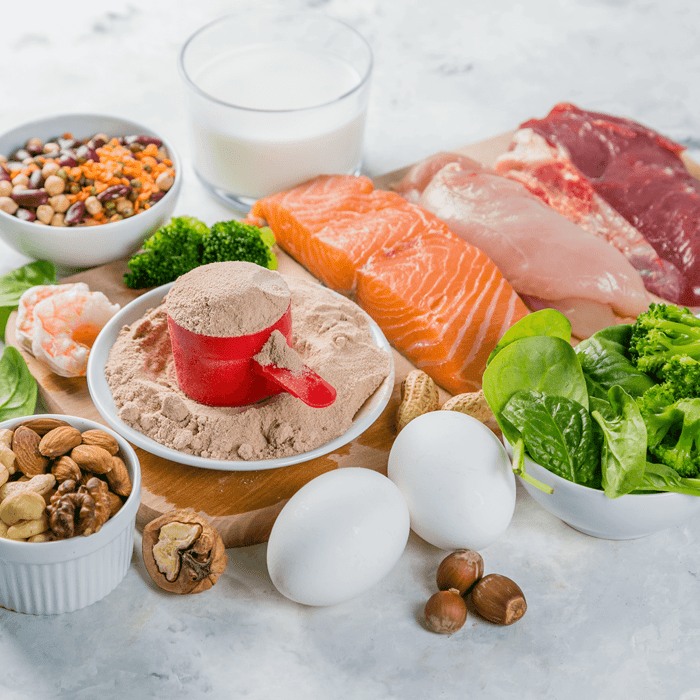Bariatric Diet After Surgery: Post Op Eating Tips
Lifestyle
February 1st, 2022

You have been prepping for the big day for months-maybe even years. Now that surgery has occurred, it's time to begin your post-op bariatric diet and the rest of your life! The purpose of a regimented post-op diet is to allow your stomach to heal after bariatric surgery. We want you to have zero post-op complications and feel your best. The bariatric diet after surgery is also about getting your body used to eating smaller portions, which will be your new way of life.
Post-op diet protocols can vary from program to program. We urge you to follow the diet given to you by your healthcare professionals. Typical post-op bariatric diets can transition through 5 stages: clear liquids, full liquids, purees, soft solids, and solids. It is important you follow these stages as directed and give time to each stage as you transition to solids. As you progress through stages, remember to take your time when eating and to chew foods thoroughly.
At each stage of your post-op bariatric diet, it is important to keep hydrated. However, since your new anatomy is smaller than you are used to, getting in the required 64oz of fluid per day can be difficult. Remember, alcohol and caffeine can both cause dehydration and are best avoided. It is recommended you drink liquids between, not with, your meals. You'll want to eat small, frequent meals. At the beginning of your bariatric post-op diet, protein-rich foods should be your focus. Protein feeds your muscles, and as you lose weight rapidly, you run the risk of losing muscle. Since the goal is to be lean, maintaining muscle mass is of utmost importance.
After weight loss surgery you will need to take specific doses of vitamins and minerals for the rest of your life, as your ability to absorb vitamins and minerals is altered after bariatric surgery. For recommendations on this we look to the ASMBS (American Society for Metabolic and Bariatric Surgery). The ASMBS sets guidelines for what supplements patients need to take after surgery.
Remember to stay on track. Take it day by day-one meal at a time, one bite at a time, and one sip at a time. The post bariatric surgery journey is a marathon, not a sprint. Remember what you've learned, and you'll be successful!
In addition to the above, here is some advice on a successful post-op journey from the author, a dietitian who has worked with bariatric and weight loss patients for over 5 years:
- Eat your meals off of a salad, appetizer, or dessert plate. This will make your smaller portions seem less small.
- Put your fork down between bites to allow time for digestion and to evaluate if you are still hungry before the next bite.
- Use smaller utensils to take smaller bites.
- Be sure to chew each bite thoroughly.
- Eat your protein-rich foods first, followed by vegetables, then starches. This will allow you to fill up on what is most important.
- Aim for 60-80 grams of protein per day and 25-35 grams of fiber per day.
- Meal prep can help keep you on track. Try to plan for the week, or, at the very least, plan your protein sources for the week. This way, you know you are getting enough protein because you know your protein sources.
- If you are going to a gathering, party, or family event at which you will be eating, eat before you go, or bring what you need with you. This way you are not hungry when you get to the event, and you have nourished your body with what it needs. Depending how far post-op you are, this could be anything from a shake to a tuna salad, or even some grilled chicken with vegetables that you bring in a small container. If it is a potluck, one thing I like to offer to do is bring a vegetable dish, this way I know there will at least be one option I can eat to stay on track.
- Don't weigh yourself daily! The weight will fall off some weeks, and then there’ll be weeks during which you don't lose any weight. Continue working along, moving your body, drinking adequate fluids, and eating small, frequent meals.
References:
- "A Guide to Eating after Gastric Bypass Surgery." Mayo Clinic, Mayo Foundation for Medical Education and Research, 21 Sept. 2018, www.mayoclinic.org/tests-procedures/gastric-bypass-surgery/in-depth/gastric-bypass-diet/art-20048472.



